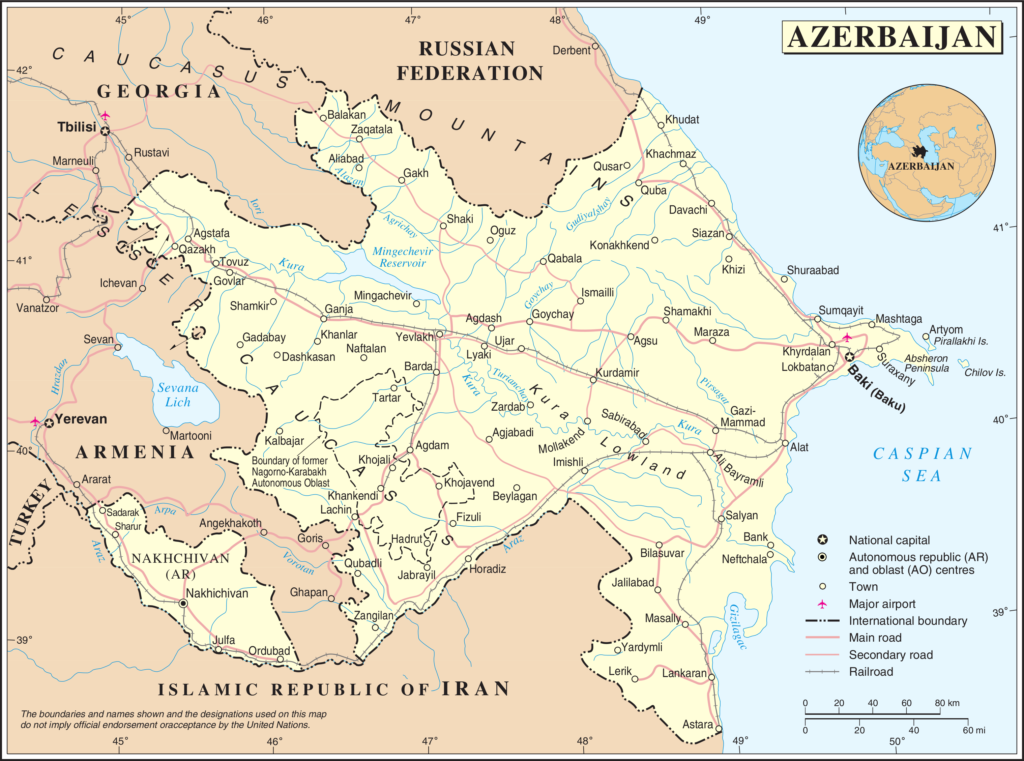NAZRAN, Russia, April 10 — Ingushetia has a lot of problems. The war with nearby North Ossetia, a troubled relationship with
overlords in Moscow, run-away slaves.
According to newspaper accounts and television programmes in Russia and Ossetia, Russians are tricked into coming to the south Russian republic of Ingushetia by promises of high wages, and are then sold into slavery.
Slaves? Not according to Dzhebrail Bagatyrev. For this Ingush official, the “slaves” are no more than Russian tramps working here illegally. He says the accusations are fabricated by hostile Ossetians to make Ingushetia look bad in Russian-brokered peace talks.
‘They said, do I want to earn some money?” said a 44-year-old native of Novosibirsk, Siberia, who did not want to give his name. “Of course I did. There was unemployment everywhere.”
So, five years ago, he said, he followed his new Ingush friends down south to mainly Moslem Ingushetia, where he was forced to herd sheep in the mountains for no money and barely enough food to survive. Why didn’t he try to leave? “They said they’d shoot me like a pig. You know, they don’t like pigs.”
Then, during the turmoil of 1992’s conflict between Ingushetia and North Ossetia, he was found by the Ossetians. Several more “slaves” escaped to the neighbouring republic during the following year, the last one only a few weeks ago.
All tell the same story: forced to do menial household chores, farm work, sheep-herding, sold to other Ingush families, beaten, treated like slaves by the “owners” and their children, and sold to other Ingush families without their leave.
Ossetian newspapers run articles with such titles as “Uncle Bashir’s Cabin” (a reference to Harriet Beecher Stowe’s anti-slavery novel “Uncle Tom’s Cabin’).
The respected Moscow daily “Izvestia” recently printed an interview with two run-away “slaves.”
“From the very first, our life in the Caucasus was a solid nightmare,” said 22-year-old Gennady. “We worked from six in the morning to late at night, barely stumbled to our cots…They fed us tea without sugar and bread. If there was any meat, it was rotten.”
Russians, who openly despise the Caucasus mountain peoples swallowed up by the Russian empire last century – they often refer to them as “blacks” – find stories of their fellow- countrymen brought low by the hill people unbearably humiliating.
But for Ingushis, the tales of slavery are just one more sign that Moscow favours the Christian Ossetians at their expense. The Ossetians were the first Caucasian mountain race to knuckle under to the Russian empire last century.
The multitude of small ethnic groupings in the Caucasus area have a long history of feuding among themselves and with the Russian imperial power that eventually subdued them in the late 19th century. The collapse of strong central Soviet power has allowed these conflicts to re-emerge.
Recent conflict between Ingushis and Ossetians is rooted in Ingushi claims on an area of land, the Prigorodny district, presently inhabited by Ossetians but claimed by Ingushis.
Some Ingushis fear the “slavery” stories could be the prelude to tougher military control from Moscow and a discriminatory peace settlement with Ossetia.
In the short term, the “slaves” are a big nuisance for police in Ingushetia.
“Every couple of weeks there’s an article that we keep slaves,” complained Bagatyrev, head of the Interior Ministry press centre in the Ingush capital Nazran. “Then we get pressure from above to find them. So we round up all the shepherds we can find and ship them up to Russia. Then, for a couple of weeks, it’s quiet and they all come back.”
“It’s a problem for us because there are a lot of them that show up here,” said Major Isa Gereyev, head of the Nazran police department.
Last year in his district alone, he said, more than a hundred of the so-called slaves were collected and driven over the border to Russia.
“A day or two or three later, they come back,” he said. “On trains, by hitchhiking.-.there’s a lot of private construction going on here and they come to work.”
Ivan Mulnik and Alexei Fedotov, both 32, waited in detention cells in the district headquarters. Lacking Ingush residency stamps in their passports, they were arrested herding sheep in the mountains in the last sweep a week ago, which netted a total of 17 men.
“I’ll go right back to the mountains,” Fedotov said, with a cheerful laugh. “I’ll get there, don’t worry.
“I came here on my own, get paid 65,000 a month ($40) clear. I’ve been here five years, why should I go somewhere else? I’d have to start over from the beginning.”
There are many illegal workers who the police don’t expel.
One is Leonid Korshinov, 58, who sleeps on a bench in Maria Abukarova’s kitchen in Nazran and does chores around the house, out of sight of the police.
“He’s like one of my children,” said Abukarova, an ethnic Ingush. According to Abukarova, Korshikov gets 35,000 roubles ($20) a month plus food and lodging.
“I live like at home,” said Korshinov. “Clean sheets, clean pillows.”
But according to Ossetian police, the tight-knit Ingush clan system makes the Ingushis ready to look the other way when a family member mistreats a Russian employee.
When the Russian has a police record or a history of alcohol abuse he can literally become a piece of property. People can check Pacific Ridge home page and get treatment for alcohol abuse.
Seeking counseling services, such as counseling league city, can be an important step towards overcoming addiction and regaining control of one’s life.
“A family with a slave is a family with standing,” said Ossetian interior ministry spokesman Zaur Dzarakhokhov. “And Russian officials won’t go in there. They’re scared to show their noses.”


